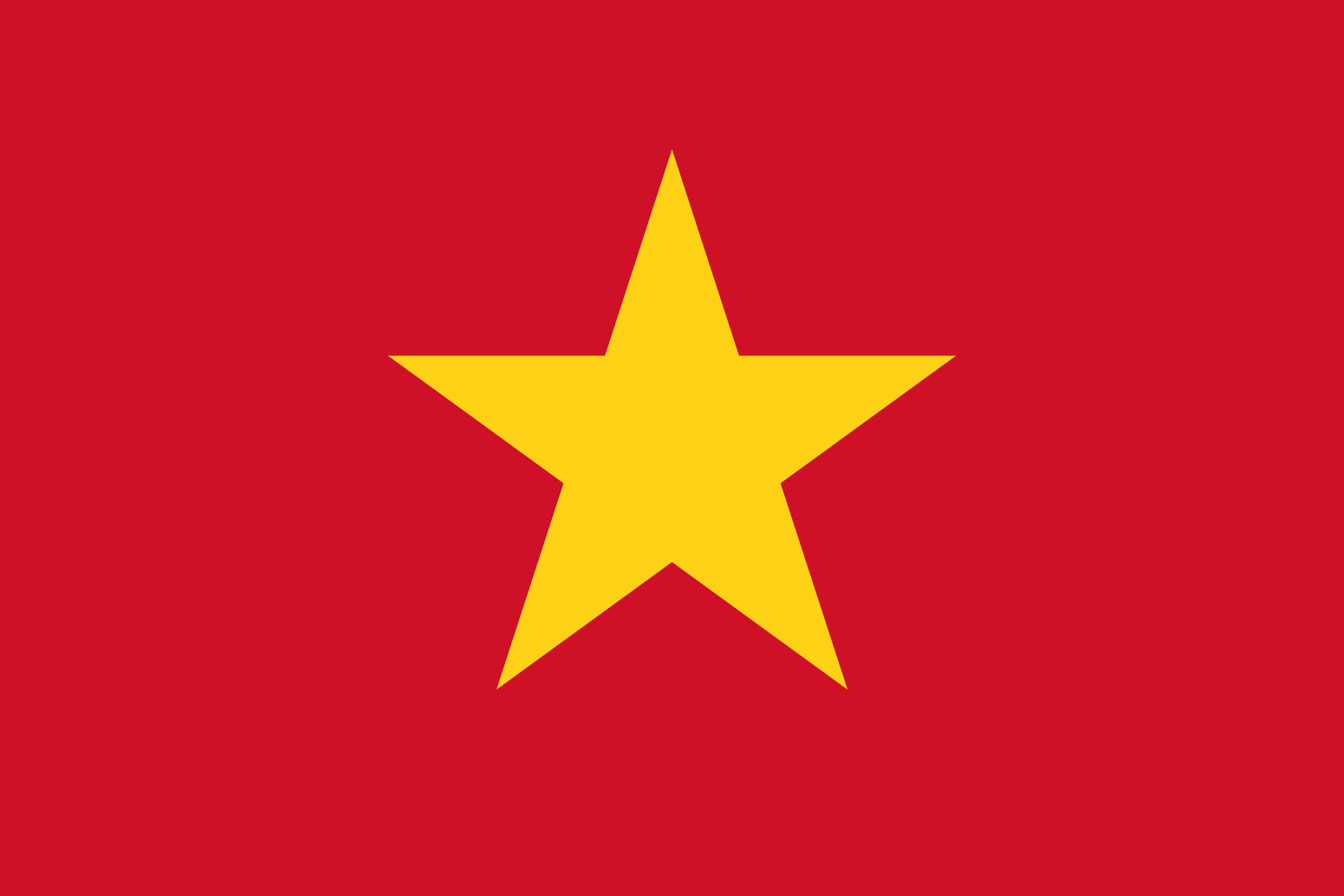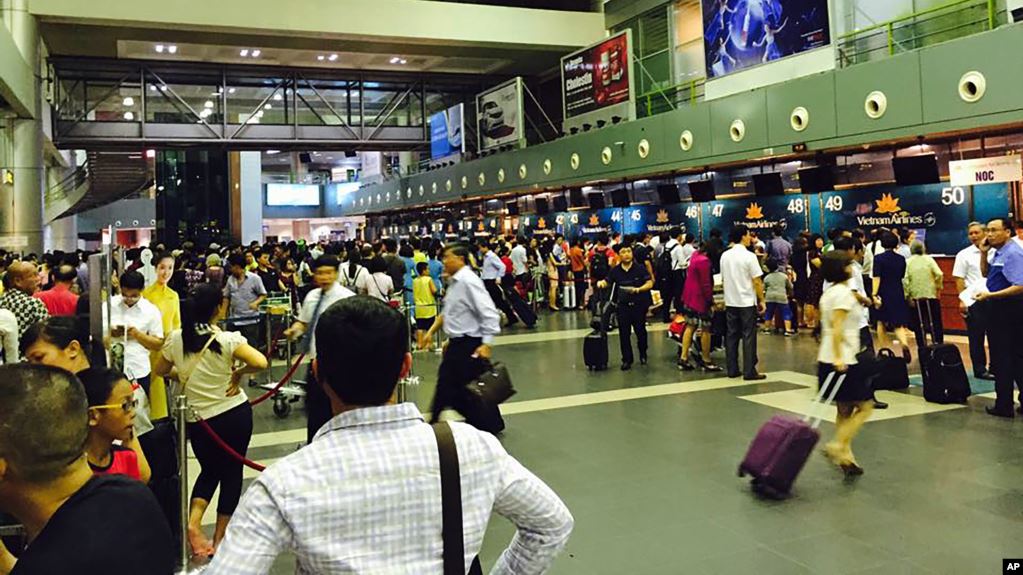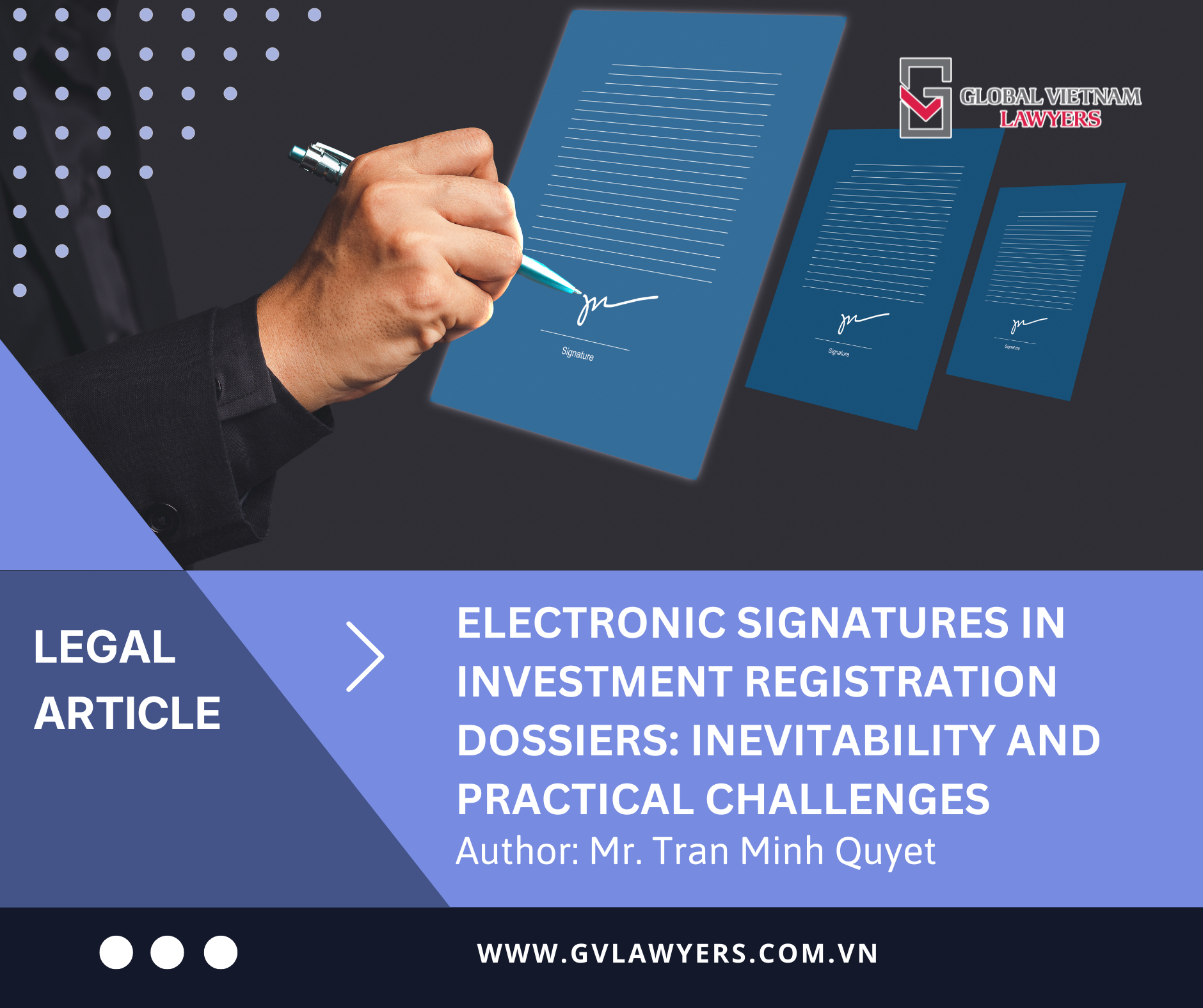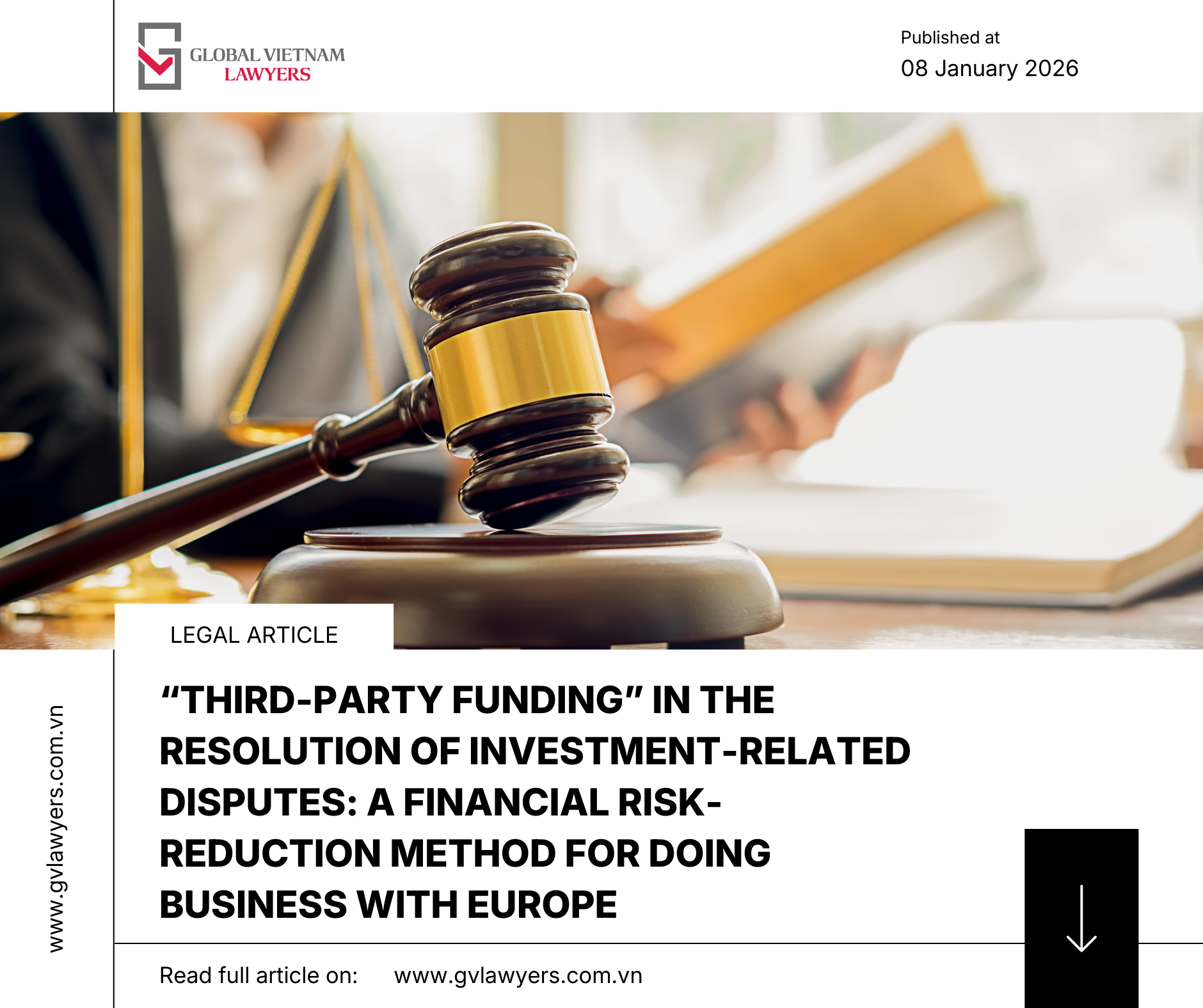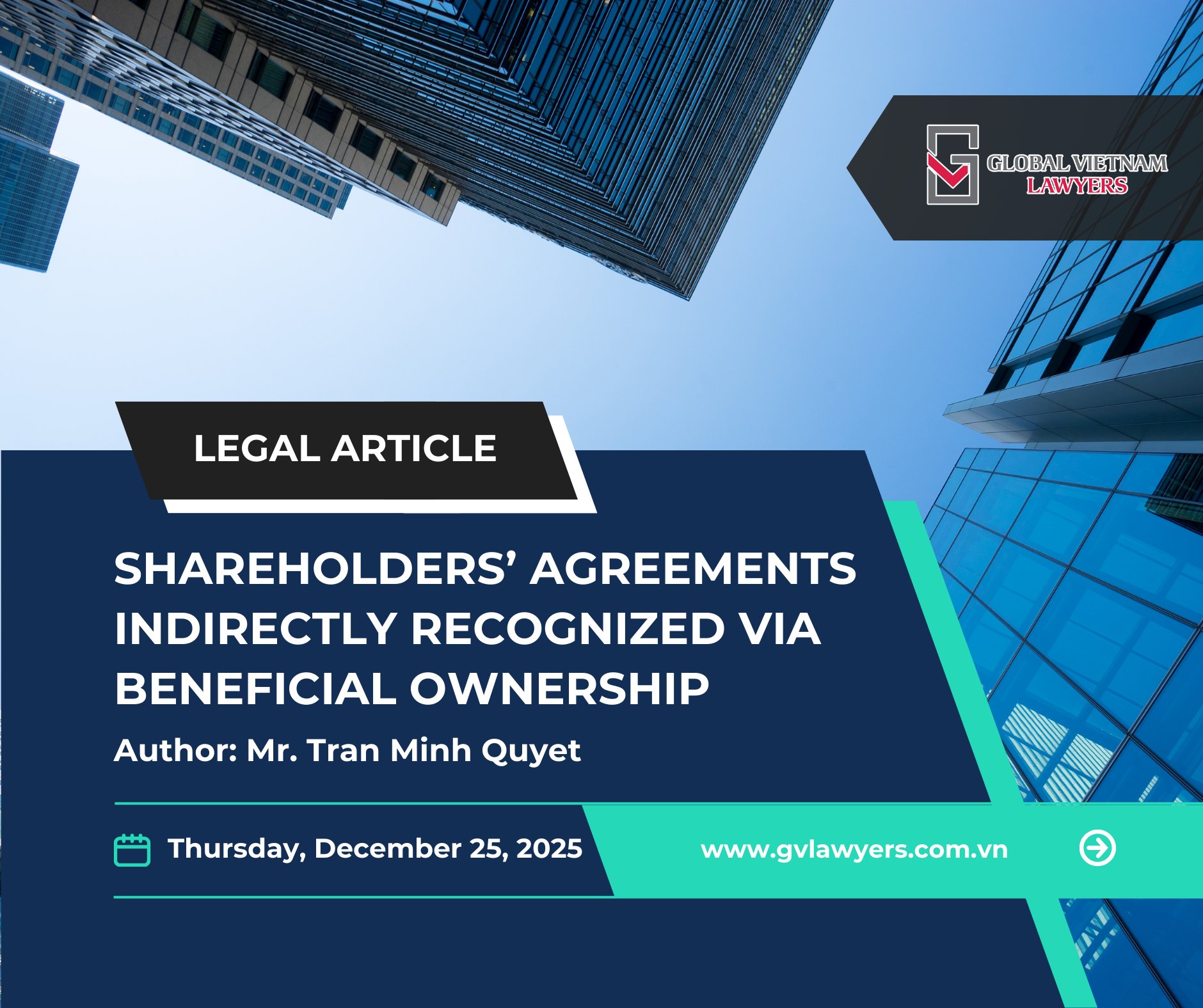GV Lawyers would like to present an article by Ms. Pham Thi Hien, entitled: “Going So Far As To Ban Tax Debtors From Exiting Vietnam” published in Saigon Times on June 20, 2019, Issue No. 25.2019 (1.488).
***
In recent times, many individuals carrying out exit procedures at the airport have unexpectedly been banned from exiting Vietnam because they owe taxes. Banning individuals owing taxes or related to tax debt from exiting Vietnam is not a fresh issue, but in fact this has been jointly implemented by tax authorities and immigration authorities for many years. However, with more and more cases of exit bans affecting the travel freedom of citizens, this legal issue and the measures to which apply to citizens is becoming increasingly prominent in the public discourse.
COERCING TAX COLLECTION BY BANNING EXITING VIETNAM
Many people believe that exit bans are one of the coercive measures to collect tax debts, and if so, the tax authorities should implement other enforcement measures such as extracting money from any tax debtor’s account, deducting from a part of their salary or income, etc. instead of banning exit from Vietnam. However, the exit ban is not actually one of the measures to enforce tax administrative decisions under Article 93 of the Law on Tax Administration. Intrinsically, prior to applying a measure to enforce tax administrative decisions, there must be a tax administrative decision such as a decision to collect tax arrears or a decision to sanction administrative violations in the field of tax and the relevant taxpayer fails to perform such decision or commits acts of escaping or dispersing properties despite expiry of the time limit for implementation of such decision. [1]
Meanwhile, from the first provision in Decree 05/2000/ND-CP[2] to the Law on Tax Administration 2006[3], the law simply stated that taxpayers will not be allowed to exit Vietnam without fulfilling their obligation to pay taxes. Accordingly, with only unpaid tax recorded on the tax authority’s system, a relevant taxpayer can be potentially banned from exiting Vietnam without having to go through the process of having a tax decision issued to await expiry of the time of implementing such a decision to issue an enforcement decision finally to taking measures to ban exiting Vietnam. In other words, the ban on exiting Vietnam is considered to be an auxiliary measure for tax authorities to deal with tax debts, which bring immediate effect because of its direct impact on travel rights of taxpayers, affecting their work and life despite simple and quick procedures.
MAY ANYONE BE BANNED FROM EXITING VIETNAM UPON OWING TAXES?
The Law on Tax Administration only requires the fulfilment of tax obligations before exiting Vietnam for individuals as: (i) Vietnamese people exiting for the purpose of settling abroad; and (ii) Vietnamese expatriates and foreigners before leaving Vietnam. As such, not all cases of tax arrears are banned. If arbitrarily applied regardless of the exit purpose of citizens such as a business trip, travel, family visits, medical treatment, overseas study, etc., a ban on exiting Vietnam is not only in non-alignment with the laws but also can do harm to citizens. It is not surprising if someday individuals who are banned from exiting will sue the immigration authorities because they have widened the scope of the exit ban because of any tax debt.
The said law that does not allow those who have not yet fulfilled their tax obligation to exit only focuses on personal income taxes or other taxes that individuals are obliged to pay, but they have not yet paid. Currently, the tax law does not stipulate that the legal representatives of the tax owing enterprises will be banned from exiting, the prevailing occurrence of their ban makes them quite worried .
The tax obligation of an enterprise cannot amount to that of an individual and, naturally, it cannot become a legal burden affecting the travel rights of the legal representative of the enterprise. However, if you do not hold “the said representative” accountable, who will replace him to assume any responsibility? Holding such legal representative accountable can affirm whether tax authorities can collect tax debts while the legal representative is only a salaried employee or a person appointed by the enterprise owner or major shareholders. When needed, enterprises will nominate alternates as legal representatives. So it is reasonable to ban the controlling enterprise owner or major shareholders from exiting Vietnam? These persons are only responsible for the debts and financial obligations of the enterprise to the extent of their capital contribution thereto. Obviously, if the legal representative or owner of the enterprise is banned from leaving the country due to its tax debts, this is a form of innocent injustice because they are not taxpayers to bear the responsibility under the perspective of the tax law. Their management and operation of enterprises is ineffective, leading to tax debt and legal consequences for enterprises, if any, will be considered in light of the enterprise law rather than tax law. For tax owing enterprises that fail to enforce tax administrative violation decisions, the tax authorities can go ahead with applying coercive measures permitted by the law against such enterprises such as stopping bank account transactions, suspending use of VAT invoices, etc. By doing so, this is both in accordance with law and .
COMPETENCE TO APPLY MEASURES TO BAN EXITING VIETNAM
The tax law stipulates that immigration authorities are responsible for stopping the exit of individuals upon receiving any written notice or electronic information from the tax administration agency on the expected person leaving Vietnam who has not yet fulfilled tax obligations as prescribed by law before leaving[4]. In terms of responsibility, if the immigration authority does not do the same, it can be considered a lack of responsibility and must hold itself accountable if the debt cannot be recovered because of the targeted taxpayer’s departure.
Also, in terms of exit ban, Article 22 of Decree 136/2007 stipulates that Ministers, Heads of ministerial-level agencies, Heads of the Government agencies and Chairmen of the People’s Committees of the centralized provinces and cities shall decide to disallow tax debtors to exit.
Despite a difference in the competence to ban exiting Vietnam under the law, the actual exit ban on tax debtors has so far been done by the immigration authorities only. In terms of state management, exiting Vietnam bans must be the work of a specialized agency in charge of immigration so as not to let the said situation happen. As a matter of law, if the legal documents have different provisions on the same issue, the legal document with higher legal effect[5] will take precedence. Thus, the Law on Tax Administration will be naturally applied in this case. Opinions suggest that the immigration authorities are carrying out duties beyond their authority and therefore will become inaccurate.
As opposed to other bigger social issues, the exit ban on tax debtors may be merely a small story that, despite its impact on a small number of people, showcases the inconsistency of the legal regulations of each stage that we need more time to adjust for uniformity. In addition, the legal application by the enforcement agencies sometimes does not lie within the allowed boundary, but to some extent, has arbitrarily widened the objects and cases of application already in place. With increased public knowledge about the law, state agencies may be exposed to administrative lawsuits in the aforesaid situations.
[1] Article 92 the Law on Tax Administration
[2] Article 14 Decree 05/2000/NĐ-CP
[3] Article 53 the Law on Tax Administration
[4] Article 53 the Law on Tax Administration and Article 40 of Circular 156/2013/TT-BTC amended and supplemented by Article 12.2 of Circular 26/2015/TT-BTC.
[5] Article 156.2 the Law on Promulgation of Legal Normative Documents 2015.


